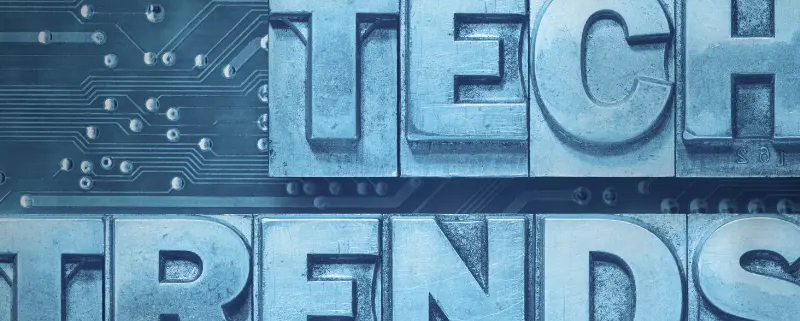Technological Trends Changing 2025:
The world of technology is ready for a big change as we approach the year 2025. It will change our way of life, the world we live in, and whole industries as new technologies come together. Let’s look at the main trends that we think will be important next year.
Machine Learning and artificial intelligence
Generative artificial intelligence models that can produce realistic text, graphics, and even video content will be developed and embraced in great numbers. Research, education, and the creative businesses will all be profoundly affected by this.
Transparency and responsibility will be increasingly sought for as artificial intelligence spreads over society. Explainable artificial intelligence models will enable ethical AI practices and build trust by helping humans to better grasp how AI systems arrive at their conclusions.
Edge computing, where AI models are placed closer to the data source, therefore lowering latency and improving privacy will be necessary given the explosion of IoT devices.
Quantum Electronics
Commercialization: From research labs to commercial uses, quantum computing is ready Unprecedented computational capability of quantum computers will help sectors including drug research, materials science, and finance.
Hybrid systems mixing quantum and classical computing will proliferate to solve the difficulties of quantum error correction and scalability.
IoT, the Internet of Things
The IoT ecosystem will grow, linking a great range of devices and thereby fostering a more linked planet. In smart cities, healthcare, industry, and agriculture, this will inspire innovation.
IoT devices will progressively use edge computing to locally process data, hence lowering network traffic and enhancing real-time responsiveness.
Improved Security: Dealing with security flaws will be first concern as IoT device count rises. Crucially important will be advanced security measures, including blockchain and AI-powered threat detection.
Extended Realism (XR)
XR technologies, including virtual reality (VR), augmented reality (AR), and mixed reality (MR) will get more easily available and reasonably priced, hence fostering more public acceptance.
XR will be rather popular in sectors including design, entertainment, and training, as well as in industry. Immersion events will transform our socializing, learning, and job performance.
XR could reinvent social interactions, build new virtual communities, and promote worldwide connections, therefore influencing society and culture.
Digital Security
Changing Threat Landscape: Cyberattacks change with technology. Still major issues are ransomware, phishing attacks, and supply chain vulnerabilities.
Organizations will have to implement proactive cybersecurity plans comprising enhanced threat detection, incident response planning, and ongoing monitoring, among other things.
Zero Trust Architecture: A security best practice, the zero-trust model, which holds that any device or user using a network could be compromised, will catch on.
Biometricians
Beyond conventional techniques to encompass iris recognition, gait analysis, and even DNA-based identification, biometric technology will grow from fingerprints and facial recognition.
Biometrics provide a more practical and safe approach to user authentication, therefore lowering the danger of identity theft and fraud.
Privacy Issues: Biometrics’ broad acceptance calls for rules to safeguard personal biometric data since they create privacy issues.
BLOCKchain
Blockchain technology will find uses outside cryptocurrencies in supply chain management, healthcare, and voting systems.
Efforts at building interoperable blockchain networks will help to solve the fragmentation of the blockchain ecosystem.
Widespread adoption of blockchain depends on addressing the scalability and efficiency constraints of it.
Sustainability
Promoting sustainability and tackling climate change will depend much on technological developments in green technologies. Sustainable materials, energy-efficient technologies, and renewable energy sources will all find increasing frequency.
The idea of a circular economy, where materials are recycled and reused, will gather steam, therefore lowering waste and environmental damage.
development of ethical artificial intelligence that fits human ideals and avoids prejudices will be increasingly important as artificial intelligence gets more potent.
These are but a handful of the technical developments influencing 2025. These patterns will generate fresh opportunities, problems, and societal consequences as they intersect and change. Understanding and adopting these new technologies will help people and companies set themselves for success in the next few years.



